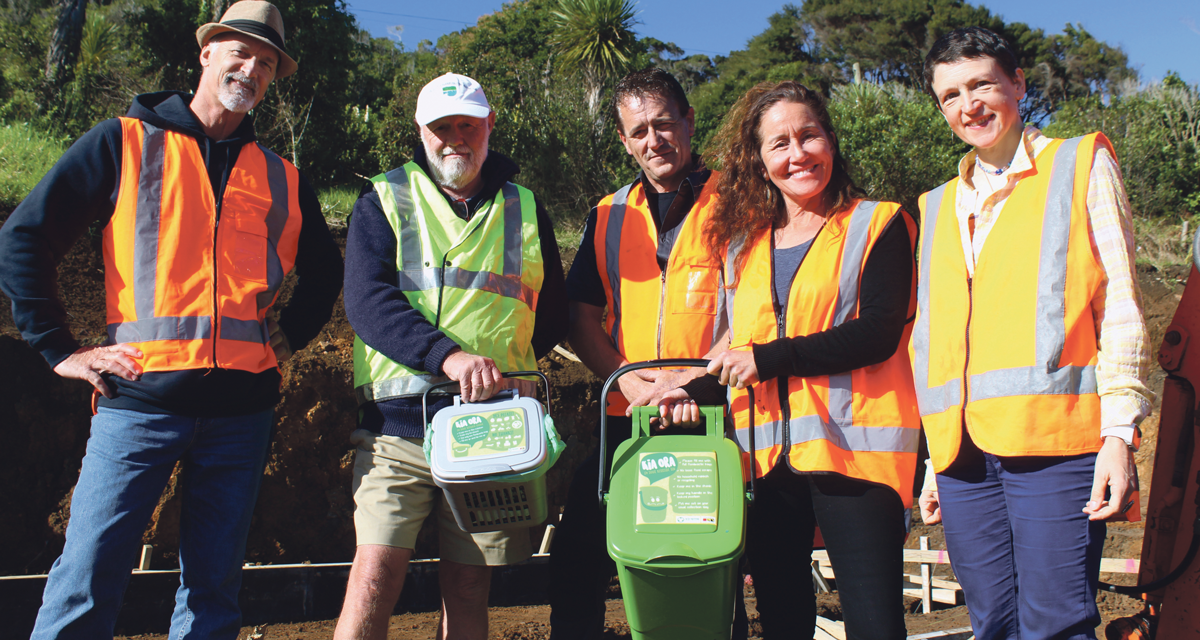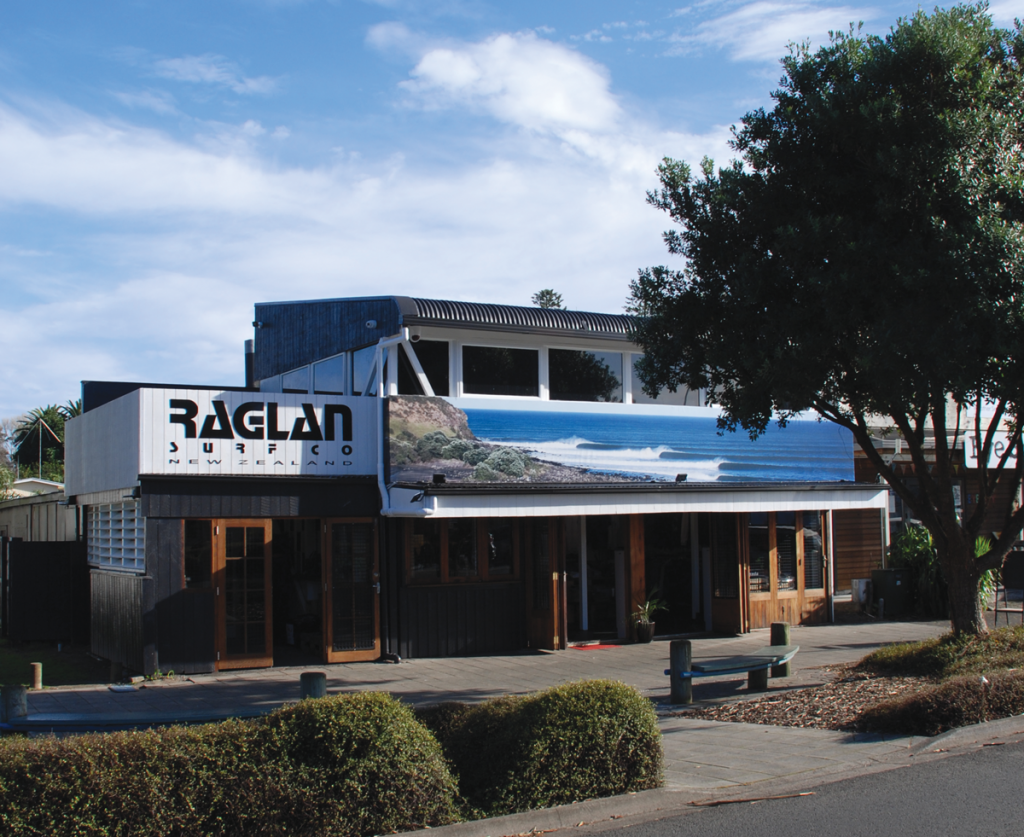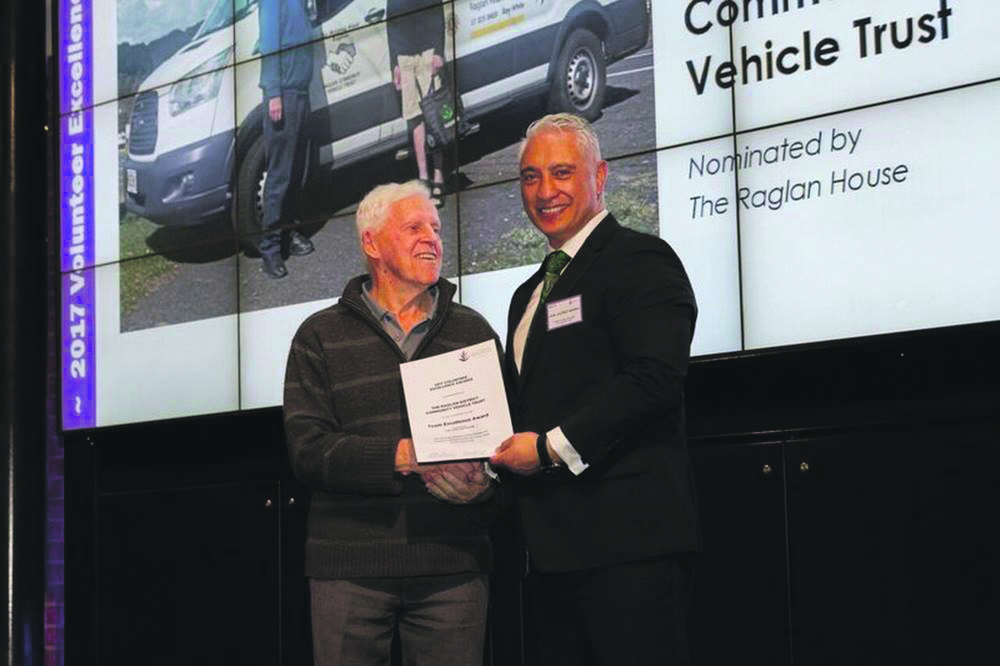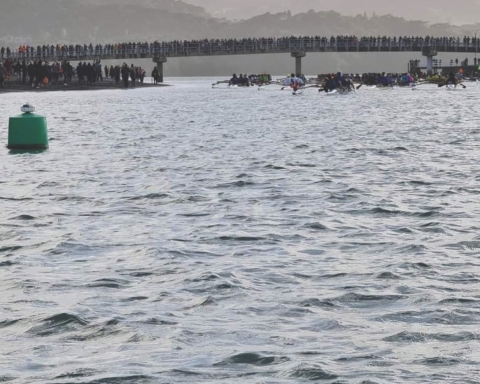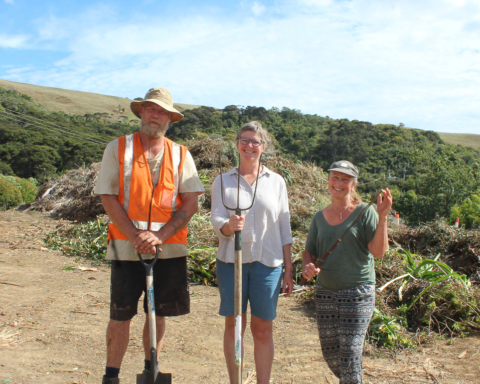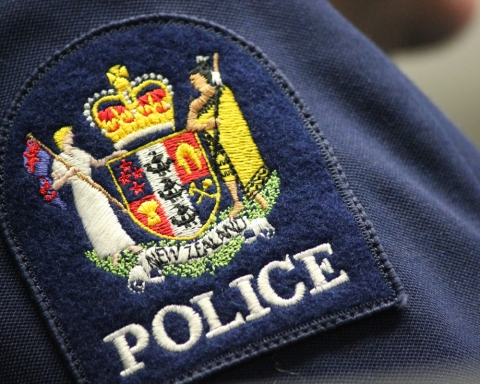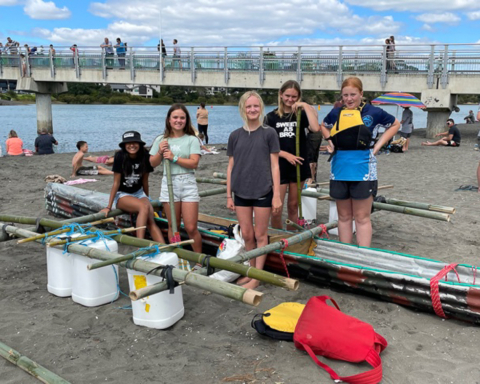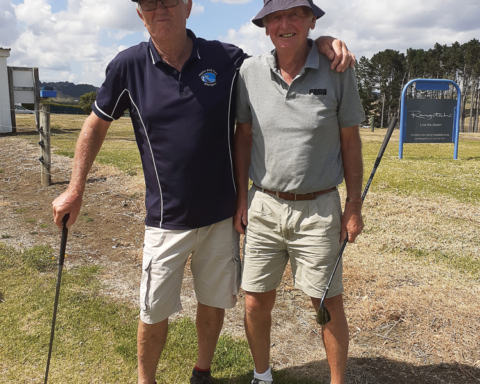The food-scraps of Raglan residents will be turned into a super food for plants come August, thanks to a $150,000 grant from the Government’s Waste Minimisation Fund.
Xtreme Waste Zero will be rolling out a food waste collection service to the town after completing a five-year trial of 100 households in Raglan West.
Associate Environment Minister Scott Simpson was in Raglan on Tuesday last week to announce the funding for the new food waste collection, diversion and composting service.
Xtreme Zero Waste spokesperson Liz Stanway says Raglan is leading the way, nationally, in reducing the amount of waste going to landfill by collecting food waste to make high-quality compost.
“Diverting food waste from landfill is quite common overseas and is going to be a normal thing in New Zealand,” says Liz, who has been in charge of the food collection trials and setting up the composting operation at Xtreme Zero Waste.
“We have to get the food waste out of landfill where it makes acidic leachate and methane, a greenhouse gas and a major contributor to climate change.
“Food waste is a heavy component of landfill across the country so many councils are looking at initiating food waste collections. We should see Raglan’s landfill volumes go down another 10 percent.”
Liz says Xtreme Waste Zero, which is breeding its own tiger worms for part of the composting programme, has been selling its “Super Food” compost from the trial for the last four years and it is very popular.
“It is amazing, people love it – it disappears off the stand really quickly. It has been trialled by Kaiwhenua Organics and we have been growing great veges with it in our own commercial gardens.
“The worms really polish the compost up, give it lots of life. That’s the point of difference in our compost. A lot of the commercial composts that have been sterilised by heat can be quite microbially dead.”
In preparation for the food collection service, a large composting unit is being built onsite at Xtreme Zero Waste.
At 30 metres long, 2m wide and 2m high, it consists of three compartments representing three stages of the composting process – the final stage is when the worms will be added.
The turnaround to produce compost is expected to be 12 weeks.
Chipped green waste will be added to the food scraps to make the compost.
“It’s sort of like baking a cake. The food waste is the butter and the green waste the flour – the moisture levels have to be just right.
“The resource consent is quite specific – exactly what the recipe is.”
The process will be strictly monitored to make sure it is composting well and that there are no odours.
“The main concern from neighbours was odour. We want to be really careful about that.”
Xtreme Zero Waste will be asking residents not to put fish in their food scraps for collection because it is stinky, and no frying or vegetable oils because they do not compost well.
“We are going to put a lot of effort into communication in the first year on how to use this service,” says Liz.
Collection days will be on the same day as the usual rubbish and recycling service.
Xtreme Zero Waste has bought a new multi-purpose truck that has a leak-proof compartment for food waste collection.
Each property will receive a food waste collection kit of compostable bags, a kitchen caddy and a kerbside bin with lockable handles to prevent dog strike.
The compostable bags are used in the smaller kitchen bins. When full they are tied off and the waste stored in the larger outside bin until collection day.
Liz says Xtreme Zero Waste anticipates that about 4-8 cubic metres of food waste will be collected from the community every week.
The collection service will be free for one year, covered by funding from Waikato District Council. It will be reviewed in the Long Term Plan process to see if the community wants to include the cost in their rates.
Xtreme Zero Waste relations manager Rick Thorpe says the desire is to have a cost-neutral system, where the number of pre-paid blue bags used for rubbish will be reduced due to the removal of food waste.
“With less waste and no bad smells of rotting food in rubbish people won’t have to put out blue bags as often.”
Rick says he’s excited about the food collection service.
“It’s about building further resilience in Raglan.”
The new service creates more local employment, and he’d also like to see a commercial growing enterprise started “once we have a consistent volume of high-quality compost being made” that could provide more jobs and training opportunities.
Inger Vos
